This Afghan boy walked thousands of miles to escape the Taliban
The prospect of the Taliban taking over even more of the country than it controls already has caused tremendous distress, prompting many citizens to begin the process of leaving, writes Borzou Daragahi

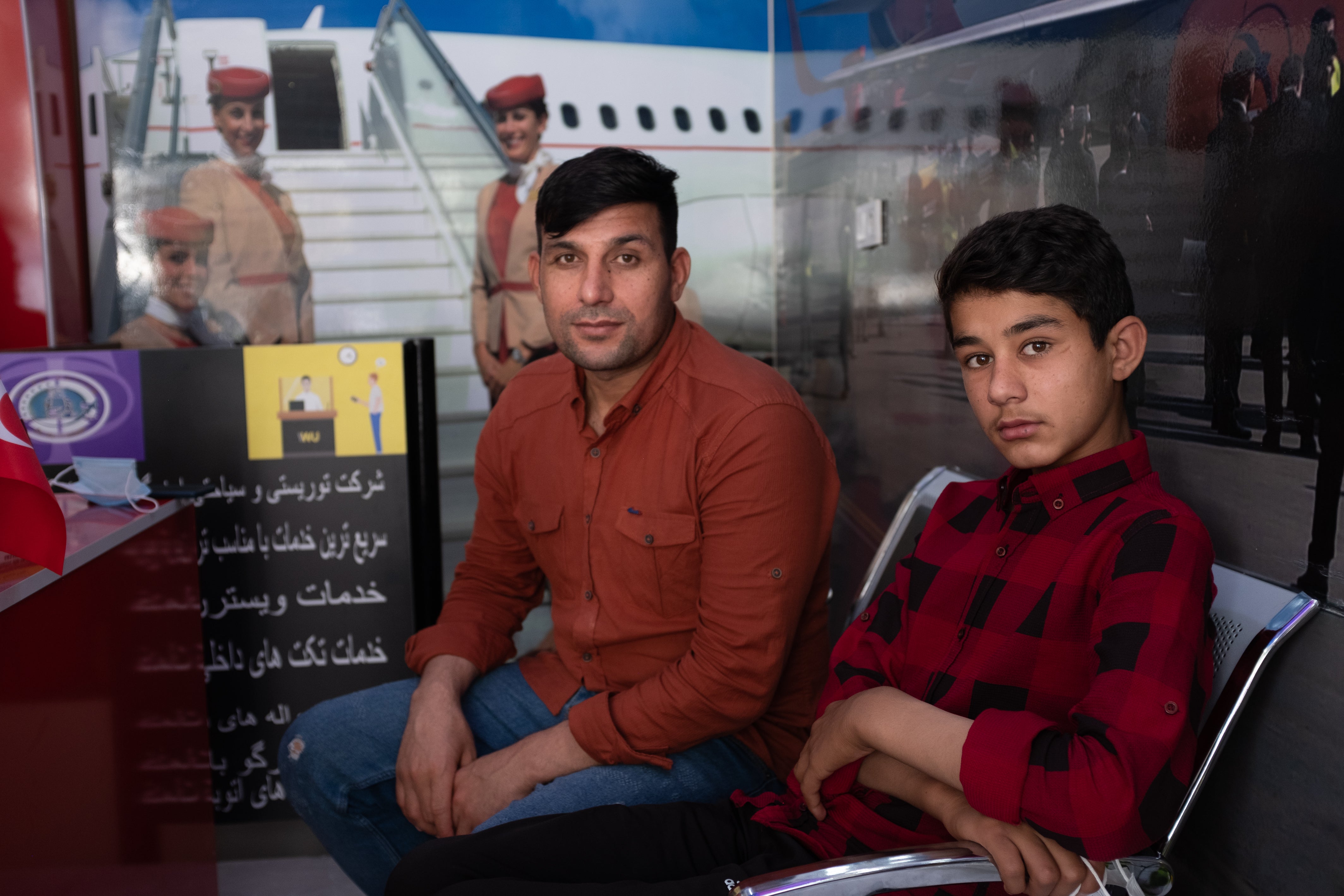
First they wanted bread. The next time they came, they demanded milk. Then the Taliban warriors encroaching on the village of Dande-Ghouri, the home of Mohammedollah Qandari’s family in Afghanistan, asked for Obeidollah, his 13-year-old son. They wanted to press him into serving as one of their fighters.
Panicked messages ensued between Qandari, living alone in Istanbul and scratching out a living as a tailor, and his family back home. Mobile phone service is spotty, and electricity is rare, in the rural Baghlan province. The hurried texts, back and forth, were curt. But the message was clear. Obeidollah must escape, and go to live with his father in Turkey, lest he become one of the many young Afghan children who are coerced into fighting and dying for the Taliban.
Qandari transferred most of the few hundred dollars he’d saved up over the months to his family, to pay off smugglers. Obeidollah, a shy, slight village boy, tearfully said goodbye to his mother and sisters, and began the epic journey that millions of Afghans have taken over the last few decades, leaving his country to escape war and misery.
“It’s a very dangerous trip,” says Qandari, sitting in an Istanbul travel agency that doubles as a community gathering place for Afghans from the northern province of Baghlan. “They destroyed a house near mine just a few days before for refusing them. We had no choice. They wanted my son.”
After two decades in Afghanistan, American and allied international troops are pulling out, rapidly removing their forces from the country before the 11 September deadline. The move has been welcomed by the many Afghans who have been eager to see foreign soldiers leave. But the prospect of the Taliban taking over even more of the country than it controls already has also caused tremendous distress, and prompted many to begin the process of leaving, or to make plans to do so.
Emboldened by the impending withdrawal of international troops, the Taliban has also begun stepping up its attacks on government forces and imposing its harsh brand of Islam on areas it controls, spurring even more people to leave.
More than 2.5 million Afghan refugees are already registered worldwide by the United Nations, constituting the second-largest community of internationally displaced people. They are concentrated in Pakistan and Iran, but are increasingly making their way to Turkey, which is seen as a way station on the path of migration to western Europe. As many as 200,000 Afghans are believed to be living in Turkey.
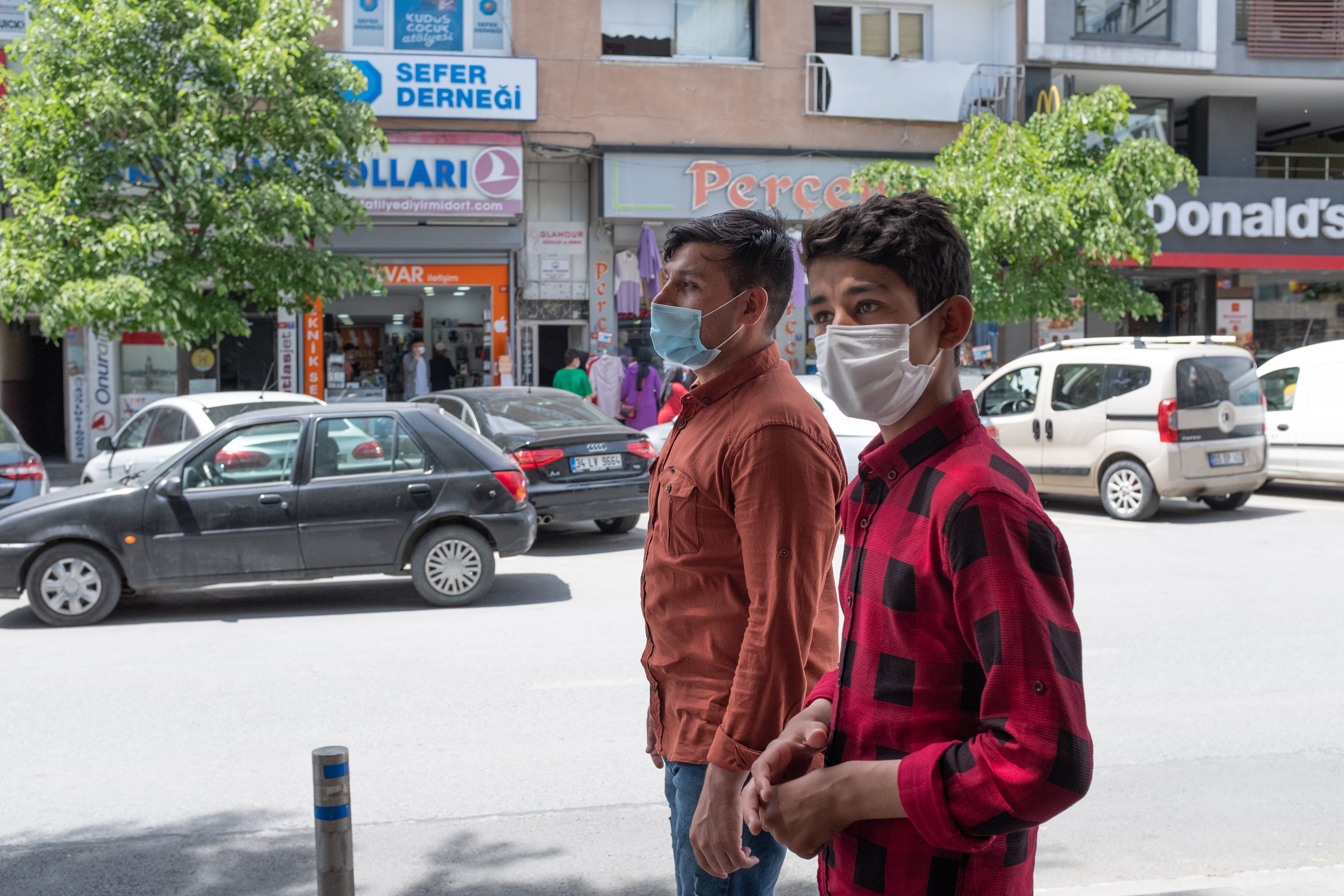
The coming troop withdrawal, and with it the prospect of the Taliban taking over the country, has prompted what advocates in Istanbul have described as a spike in migration from Afghanistan. Advocates for Afghan refugees say the numbers arriving in Istanbul alone have doubled in the last six months to around 10,000, compared to around 4,000 or 5,000 during the previous six months.
“More people are coming – they are coming from Mazar-e-Sharif, Kabul and from every province,” says Edris Attar, the deputy chief of the Afghanistan Federation of Associations, an umbrella group that coordinates activities between the various charities helping Afghans in Turkey. “They are overwhelmed by the fear of war and they are suffering from a lack of work and a bad economy. They find smugglers to bring them here.”
Thousands make the journey every day, and a whole cottage industry of smugglers transporting Afghans to Iran or Turkey has arisen
It isn’t just the poorest and most desperate who are departing from Afghanistan. Those with means are also looking to escape what they fear will be a dramatic surge in armed conflict, potentially leading to another Taliban takeover. The ultra-conservative patchwork of Islamist radical groups had control of the country between 1996 and 2001, a period many remember as one of the darkest in Afghanistan’s history.
Ferdos Nawzad’s family began to consider leaving Afghanistan for fear of what would happen to the country once international troops had departed. (The plan to withdraw allied soldiers was first announced by US president Donald Trump last October, and preparations continue under his successor, Joe Biden.)
But the final straw came when a car bomb exploded near Nawzad’s family home in the Afghan capital late last year. “It was extremely close to us,” says Nawzad, 26, who studied computer science in India and is fluent in English.
The family used their savings to purchase an apartment, which confers automatic investor status and residency. “I’m going to bring my brothers and sisters here one by one,” he says.
“Maybe it will get better in Afghanistan and maybe it will get worse,” he continues. “The worry is that the US is getting out, and Nato is getting out, and the government will collapse in two weeks. Whether it is true or not, that is the psychological worry.”
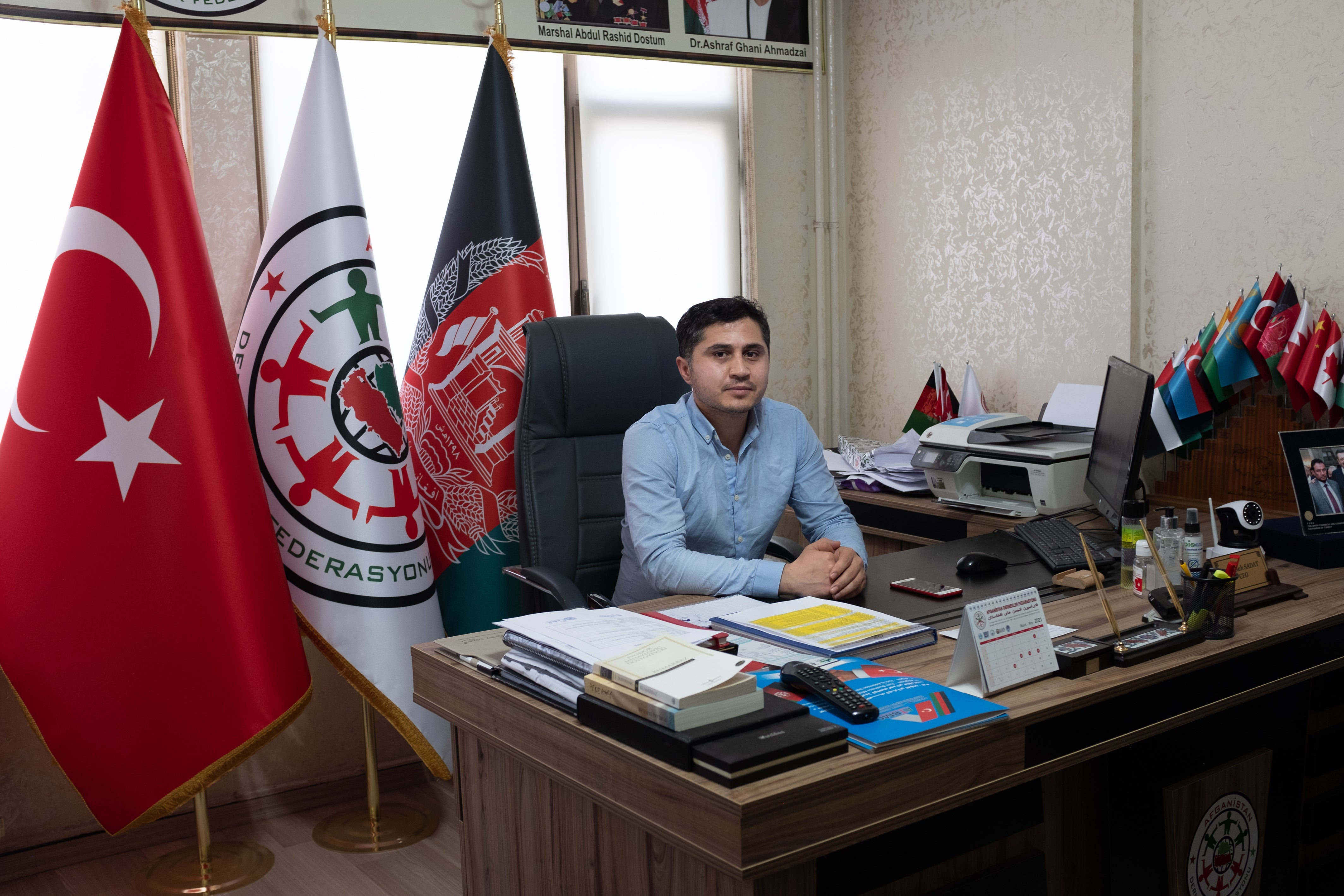
One 20-year-old Afghan woman, who asks us not to publish her name, says she fled to Turkey with her 3-year-old daughter after her husband was killed in a car bomb explosion and her Taliban-connected in-laws demanded she marry one of his brothers.
She was studying nursing in Kabul, and hopes to pursue a career in Turkey.
The 20-year-old arrived in Turkey in relative luxury, with a visa, aboard an Afghan Ariana Airlines flight to Istanbul. But Obeidollah, like most Afghans, had to take the long, treacherous 3,500-mile journey by land.
The trip is popular, and for smugglers, lucrative. Thousands make the journey every day, and a whole cottage industry of smugglers transporting Afghans to Iran or Turkey has arisen – some advertising their services on social media – asking fees of up to $10,000, with promises to take migrants as far as Germany.
After travelling from Baghlan to Kabul, Obeidollah made his way to Nimroz, the launchpad in southwest Afghanistan for migrants heading west. He paid smugglers to sneak him through Pakistan.
Obeidollah spent about a week traversing Pakistani territory, walking over mountainous terrain. Food and clean water were scarce, and the terrain was rough, with perilous mountain slopes. Pakistani border forces, Revolutionary Guards, local ethnic Baluchi tribesmen and armed drug bandits patrol the frontier with Iran, each preying on the migrants.
“They fire without hesitation,” says Qandari.
But Obeidollah was lucky, and made it across relatively unscathed. In Iran, Obeidollah blended in easily among the large communities of Afghans who’ve made their homes in Iranian cities for decades. He spent several weeks making his way across the vast country.
During the trip, he struggled to find drinking water and enough food. He slept outdoors, or in primitive cabins prepared by the smuggling networks.
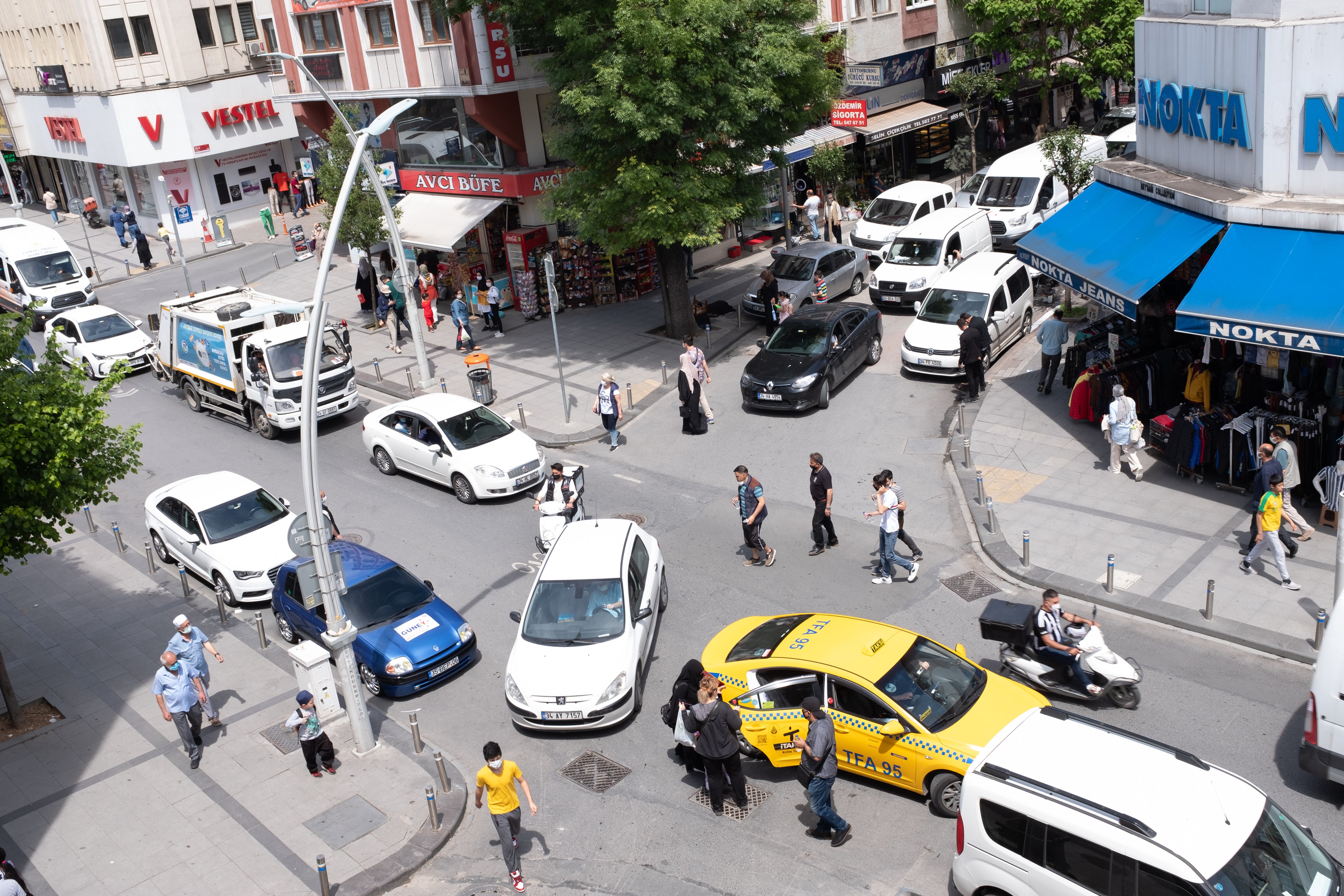
In early April, he reached the Iranian-Turkish border at Urumieh, beginning what would be the most dangerous part of the journey. The young, lanky boy went on foot, with the older refugees helping him navigate terrain beneath the moonlight. The frontier area is home to packs of wild wolves, as well as Iranian and Turkish border guards.
Suddenly, Turkish guards opened fire, allegedly striking one of the Afghan migrants in Obeidollah’s group. Panic ensued. Everyone ran in different directions.
The boy got separated from the others, and found himself lost and alone and with no way to contact his father. It was early spring, and the night was cold and rainy. Wolves howled. Along the trail, smugglers often find the bones of migrants.
“When border guards attack, refugees stampede into the mountains to hide,” reports a Swiss-funded 2021 paper prepared by the Association for Migration Research, a Turkey-based organisation. “They sometimes hide behind rocks to spend the night till a smuggler finds them for another crossing attempt. Unfortunately, most of the deaths occur during this clandestine waiting, as they either freeze to death or get attacked by wild animals.”
That night, the smugglers called Qandari with bad news. Obeidollah was lost. “I thought he was dead,” says Qandari. “And I thought, how will I call my wife and tell her?”
Qandari had made the same risky journey two years earlier. He had first made his way to Iran, to try to make a living and send some money back home. But US sanctions had badly hurt Iran’s economy, and he could find little worthwhile to do. So he moved on to Turkey, and Istanbul, where he found a home and something like a community in the Zeytinburnu district, an area filled with Afghan businesses and residents. According to one study by the International Organisation for Migration, some 35,000 Afghans are believed to live in this district alone.
“This part of Istanbul is Afghanistan in miniature,” says a report by the Afghanistan Analysts Network. “In a maze of streets near the central 58th Boulevard, merchant signs include the Balkhi Centre, the Logari Call Shop and the Kunduz Restaurant.”
Still, unlike those fleeing Syria, Afghan refugees have no official support or even legal status in Turkey, and they live precarious lives in the shadows, eking out subsistence wages on the black market.
In March 2020, when Turkish president Recep Tayyip Erdogan briefly allowed migrants in Turkey to cross into Greece, Qandari made his way up to the border, where he camped outside for a month before finding his way across the narrow Maritsa (or Evros) river that separates Turkey from the European Union.
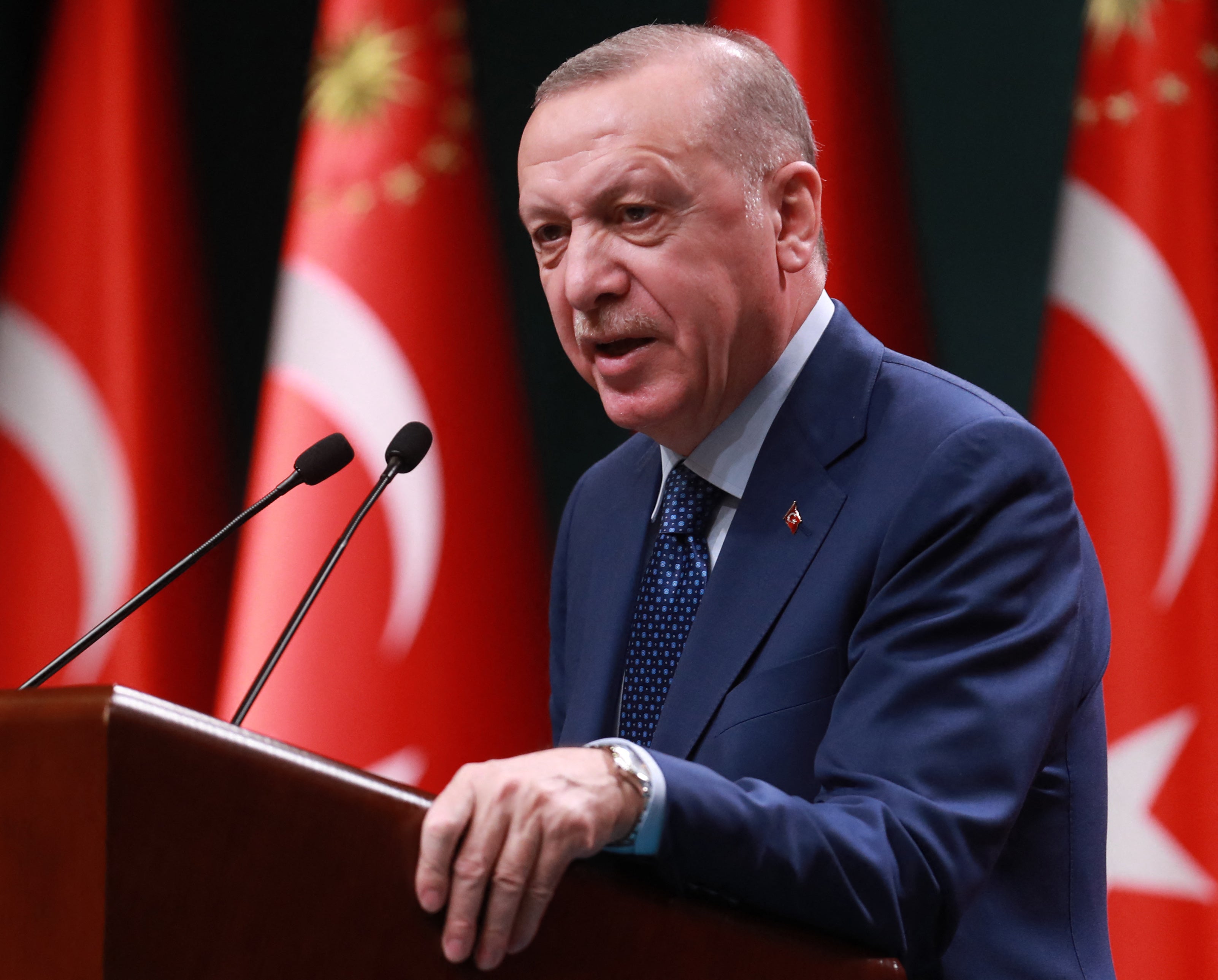
He was caught by Greek border guards, beaten, and sent back across the water to Turkey, where he spent the ensuing months attempting to rebuild his life.
Hundreds of Afghans are deported back to Afghanistan by the Turkish authorities, who are overwhelmed by the influx of Syrians, Afghans, Iraqis, Iranians and others fleeing war, poverty and repression in their own countries. In 2019 alone, 40,000 Afghans were sent back to Afghanistan by Turkey.
“There are very few services for Afghans,” says Attar. “Almost all the Afghans are considered [to be] here illegally. The families are illegal. The children are illegal so they can’t go to school. Most of them eventually decide to go to Europe when they can’t find work here.”
During Ramadan this year, Attar’s organisation managed to gather some donations, and provided free rice, sugar and cooking oil to 300 Afghan families in Turkey. But the Afghans tend to look out for each other, especially those from the same region of their country.
The morning after he was lost, Obeidallah got lucky again. He was found by another Afghan migrant, travelling in the mountains near Van, who took pity on the small, wet, shivering boy, wrapped his jacket around him, and stayed with him as they made their way towards Istanbul.
Around 20 April, Qandari received a call on his mobile phone from an unknown number. A Turkish man had found Obeidollah alone at a bus stop in Izmit, a city about 60 miles from Zeytinburnu. Qandari spoke to his son and told him to stay put. He spent the next few hours making his way there.
As the father and son embraced, they were overcome with relief and joy. “I was happy,” Qandari recalls with affection. “I was so happy, because he was with me, and I thought he was dead.”
Qandari says he’s going to try to send Obeidallah to school next year, but first he has to figure out a way to teach him some Turkish. For now, Obeidollah is trying to find work as a labourer in a textile factory. At night, he wakes up shaking and terrified from nightmares about the harrowing 50-day journey he undertook.
With American troops set to leave, and the war potentially escalating, Qandari has given up on any hope of returning to Afghanistan. His next aim is to bring to Istanbul his wife, four smaller sons and daughter, whom he fears will not be able to attend school if the Taliban fully takes over their village.
“It’s the Taliban. The Taliban!” he says. “They have destroyed the whole country.”
Join our commenting forum
Join thought-provoking conversations, follow other Independent readers and see their replies
Comments